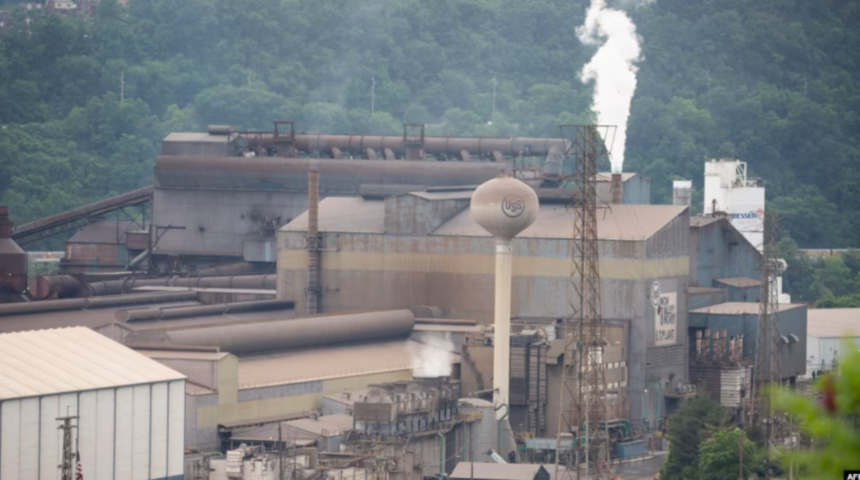President Joe Biden has rejected a proposed $15 billion deal in which Japanese steel company Nippon Steel would acquire Pittsburgh-based U.S. Steel. With this decision, President Biden fulfills his earlier promise to block the acquisition of one of America’s most iconic steel companies.
“We need major American companies that represent the bulk of our steel production capacity to remain at the forefront of manufacturing in the interest of America’s national priorities,” said President Biden in a statement on Friday morning.
This decision follows a lack of consensus among the U.S. Committee on Foreign Investment (CFIUS) regarding potential national security risks associated with the deal. CFIUS submitted its long-awaited report to President Biden on the matter last month. The President was required to make a final decision within 15 days, with the committee, led by Treasury Secretary Janet Yellen and comprising other Cabinet members, having the authority to recommend blocking a transaction, a power granted to the President under federal law.
An anonymous U.S. official familiar with the matter told the Associated Press last month that some federal agencies represented on the committee did not believe that a Japanese company acquiring an American steel company would pose a national security risk.
This decision comes just weeks before President Biden completes his term and could strain U.S.-Japan relations, the U.S.’s largest ally in Asia. Biden first opposed the deal in March, receiving backing from the United Steelworkers union, which was concerned the company might fail to honor existing labor agreements or might cut jobs. Additionally, the union raised concerns about the financial transparency of Nippon Steel.
“It is important to have strong American steel companies with American workers,” President Biden said in March before his re-election bid.
“U.S. Steel has been an iconic American steel company for over a century, and it is vital that it remain an American steel company, owned and operated within the U.S.,” he added.
Even President-elect Donald Trump opposed the acquisition, pledging in December on his social media platform Truth Social to block the deal and use tax incentives and tariffs to strengthen the company.
On Friday, United Steelworkers President David McCall expressed gratitude for Biden’s decision, calling it “the right move for our members and our national security.” McCall had long questioned Nippon Steel’s standing concerning U.S. national trade interests and reiterated his concerns on Friday, stating in a statement that “Nippon has shown it consistently engages in deceptive trade tactics.”
“The acquisition of U.S. Steel would have given them the opportunity to further destabilize our trading system from within, ultimately obstructing our ability to meet our national security needs and critical infrastructure demands,” McCall said.
U.S. Steel has the financial tools necessary to remain strong and sustainable, he added.
In response, Nippon Steel claimed that it was in the best position to help U.S. steel production compete in an industry dominated by China and pledged to invest billions in U.S. Steel’s aging furnaces, as well as protect the U.S. steel industry in trade matters.
Nippon Steel announced in December 2023 its intention to acquire U.S. Steel for $14.9 billion and vowed to preserve the U.S. Steel brand and keep its headquarters in Pittsburgh.
Despite these assurances, the proposed deal raised concerns about its potential effects on unionized workers, supply chains, and U.S. national security.
President Biden’s decision comes amid a wave of political support for revitalizing America’s manufacturing sector and follows the expansion of U.S. protective tariffs, which analysts say have helped revive the domestic steel industry.
Nippon Steel launched an extensive campaign to gain support, even offering $5,000 bonuses to U.S. Steel workers if the deal went through, a total expenditure of nearly $100 million.
A growing number of conservatives and business groups publicly supported the deal, as Nippon Steel secured the backing of some members of the steelworkers’ union and local leaders in areas near the steel furnaces in Pennsylvania and Indiana.
Mike Pompeo, who served as Secretary of State under President Trump, called the potential rejection of the deal “short-sighted” in the Wall Street Journal last month.
“The deal would strengthen U.S. Steel’s current operations and production capacity, benefit workers and their communities, and increase the competitiveness of the U.S. steel industry,” Pompeo wrote.







